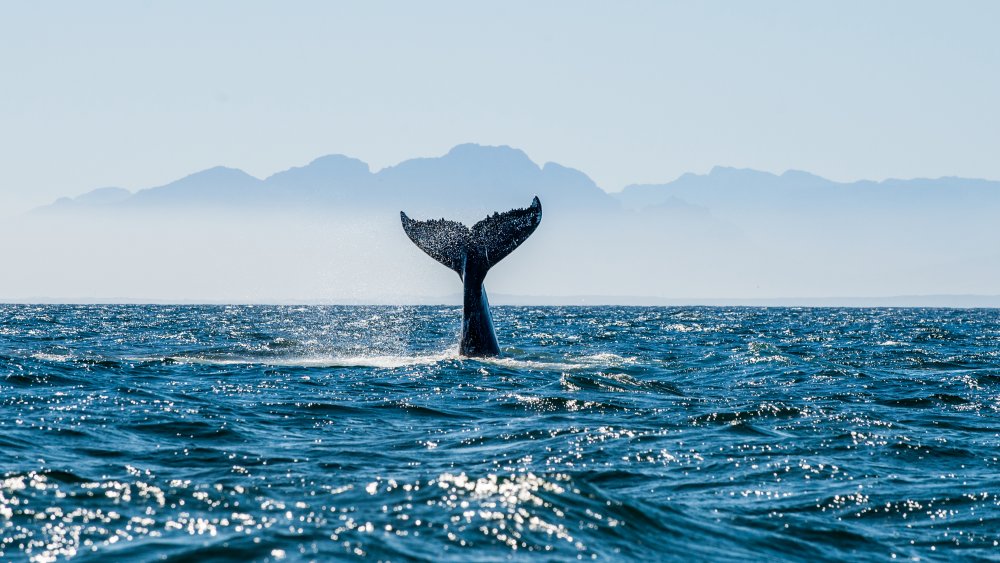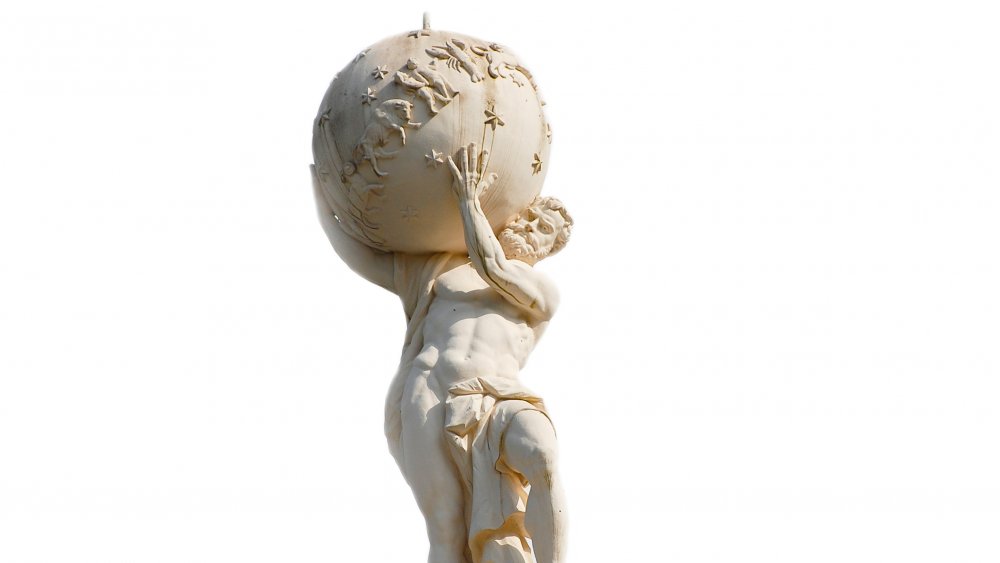Here's How The Atlantic Ocean Got Its Name
The Atlantic Ocean is the Earth's second largest body of water. According to the National Ocean Service, the Atlantic covers approximately 41,105,000 square miles, or about 20% of the Earth's surface. Yet, the title itself, the Atlantic, sounds a bit impenetrable ... you more, like a certain prestige monthly magazine, which happens to share the name. To understand where "Atlantic" comes from, then, it seems some delving is required.
It would probably surprise no one to learn that ancient Greece was behind the etymology of the Atlantic Ocean. Specifically, the word comes from an inflected form of Atlas, the titan from Greek Mythology, whose punishment for fighting with the Olympic gods was to carry the sky on his shoulders for all eternity. Others, as Theoi notes, said he was merely charged with guarding the pillars that kept the sky and ground separate. The place where he was said to perform his duties was in the Sea of Atlas, by which the Greeks referred to the body of water beyond the Pillars of Hercules, the two rocks that flank the strait of Gibraltar. The general idea of Atlas, in this area, extends to the mountains in Morocco, which border this body of water, and the so-called Atlas Mountains, as CNN writes, dominate the northern African landscape.
The evolution of the Atlantic Ocean
While the Atlantic received its name from the titan, the Greeks did not consider the Atlantic Ocean to be an ocean. Herodotus, in his writings, took a slight detour to talk about oceans, as printed online by Tufts University: "The opinion about Ocean is grounded in obscurity and needs no disproof; for I know of no Ocean river; and I suppose that Homer or some older poet invented this name and brought it into his poetry."
At first glance, such disbelief might seem strange. After all, he knows of the Sea of Atlas, so he knows of massive bodies of water. However, that's because the Greeks had a different conception of oceans than us. The ocean to which Herodotus is referring is the Ocean River — or River Okeanos, according to Theoi — a freshwater river that flowed around the boundaries of the Earth and supplied all the rivers, streams, and springs with drinkable water under the guidance of the titan Oceanus. Oceans, as they are known today, would be considered seas by Herodotus.
As the centuries passed, and people developed a firmer grasp of geography, the original understanding of the Ocean River disappeared. However, the sense of the word "ocean," meaning a giant body of water, was retained. And, according to Tufts University, this sense of ocean merged with the meaning of the Sea of Atlas, that is the water beyond Europe, to form what is today known as the Atlantic Ocean.

